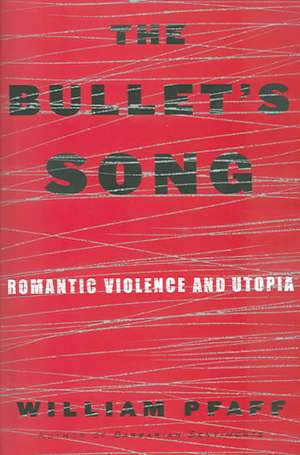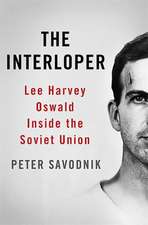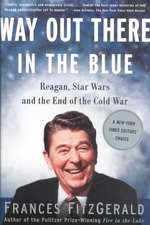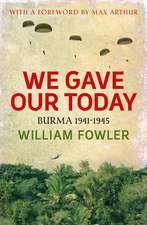The Bullet's Song
Autor William Pfaffen Limba Engleză Hardback – 31 oct 2004
The account begins with Italy's Futurists, who glorified war as "the world's only hygiene"; painted speed, action, and noise; invented "found sound" and chromatic pianos; thought violence sublime; and demanded "reconstruction of the universe."
Gabriele D'Annunzio, poet, playwright, and nationalist buccaneer, created a revolutionary utopia in a Dalmatian city stolen in 1919 from Woodrow Wilson and the Versailles Treaty makers. In doing so, he invented the political style and rituals of Fascism, as well as Third World liberation. T.E. Lawrence, archaeologist and spy, guided the Arab revolt against the Turks, becoming both "Uncrowned King of Arabia" and masochist secular saint. Ernst Jünger, artist and scientist, the German army's most decorated hero of World War I, made heroism a political ideology and became intellectual leader of the National Cause. Hitler was a follower. In World War II Jünger plotted Hitler's assassination and survived to become a symbol of Franco-German reconciliation. Willi Münzenberg, Lenin's propaganda genius and an original member of the Comintern, invented the political "front" organization, created the Sacco and Vanzetti case, and seduced a generation of "innocents" to the Communist cause before becoming a dissident himself. He wasstrangled by Soviet agents in a French forest. André Malraux, fantasist "Byron of the 1930s," world-famous novelist, emulator of T.E. Lawrence, and make-believe leader of the Chinese revolution, discovered "that daydreaming gives rise to action." He created and led an air squadron for Republican Spain, wrote himself into the script of the French Resistance as a hero -- and became one. Arthur Koestler, the most famous scientific journalist in Europe, was a Comintern spy in Spain; condemned to death there, he abandoned the cause and wrote Darkness at Noon, the most influential anti-Communist work of its time, before committing suicide in 1976.
Others with roles in The Bullet's Song are Benito Mussolini, Filippo Tommaso Marinetti, Che Guevara, Charles de Foucauld, Simone Weil, Jean-Paul Sartre, Simone de Beauvoir, Europe's terrorists of the 1970s, and "Popski" -- Vladimir Peniakoff -- the honorable man who found happiness in leading his private army to war.
Preț: 376.69 lei
Nou
Puncte Express: 565
Preț estimativ în valută:
72.09€ • 74.98$ • 59.51£
72.09€ • 74.98$ • 59.51£
Carte disponibilă
Livrare economică 22 martie-05 aprilie
Preluare comenzi: 021 569.72.76
Specificații
ISBN-13: 9780684809076
ISBN-10: 0684809079
Pagini: 384
Dimensiuni: 161 x 234 x 31 mm
Greutate: 0.72 kg
Editura: Simon&Schuster
ISBN-10: 0684809079
Pagini: 384
Dimensiuni: 161 x 234 x 31 mm
Greutate: 0.72 kg
Editura: Simon&Schuster
Descriere
The syndicated political columnist relates the dramatic, untold story of the roots of Fascism, Nazism, and Communism which took the lives of hundreds of millions in the 20th century, as well as of today's fundamentalist terrorism.
Cuprins
Contents
Introduction
1. Romanticism and Violence
2. Overture
Part One: Chivalry
3. The Fallen Hero
4. The Warrior
5. The Happy Man
Part Two: Utopias
6. The Mediterranean Superman
7. The Confidence Man
8. L'Homme Engagé
9. The Anti-Communist
10. Coda: The Romantic Revolutionary
Conclusion
11. Progress
Appendix: "Out-Münzenberging Münzenberg"
Bibliography
Index
Introduction
1. Romanticism and Violence
2. Overture
Part One: Chivalry
3. The Fallen Hero
4. The Warrior
5. The Happy Man
Part Two: Utopias
6. The Mediterranean Superman
7. The Confidence Man
8. L'Homme Engagé
9. The Anti-Communist
10. Coda: The Romantic Revolutionary
Conclusion
11. Progress
Appendix: "Out-Münzenberging Münzenberg"
Bibliography
Index
Notă biografică
William Pfaff is a political columnist for The International Herald Tribune, London's The Observer, and other newspapers. A political essayist for The New Yorker from 1971 to 1992, he is the author of eight previous books, including Barbarian Sentiments: How the American Century Ends, a National Book Award finalist and winner of the City of Geneva's Prix Jean-Jacques Rousseau. He lives in Paris.











